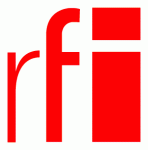![King- M6]() On July 30, 2015, on the occasion of Throne Day, King Mohammed VI delivered the following speech to the nation:
On July 30, 2015, on the occasion of Throne Day, King Mohammed VI delivered the following speech to the nation:
Praise be to God, may peace and blessings be upon the Prophet, His Kith and Kin.
Dear Citizens,
Today, we are proudly celebrating the sixteenth anniversary of my accession to the glorious Alawite throne. This is not just a passing, temporary celebration, but a highly significant moment which embodies the strong vows of shared loyalty, as well as the ever-growing bonds of allegiance between you and your first servant.
This annual celebration is an opportunity for us to pause and ponder on the nation’s achievements and the challenges ahead.
It is also an opportunity for me to extend my thanks to all the stakeholders in the nation who are supporting me in this collective endeavor at the service of our fellow citizens.
I would like to tell them how much I appreciate their contribution to upholding Morocco’s standing and to enhancing the trust enjoyed by the Kingdom, particularly in the current regional context.
However, I do not want to talk merely about achievements; nor do I want to dwell on tallies and figures.
All that has been achieved, no matter how significant it is, remains insufficient for our country, as long as there is a category of the population still living in dire conditions and feeling marginalized, notwithstanding what has already been done.
It is true that this category is getting smaller and smaller, but I want to see to it that all citizens benefit from the nation’s wealth.
I pledged to work, for as long as I live, to achieve this goal, and my ambition for the well-being of Moroccans has no limits.
All you experience in life is of interest to me: what hurts you affects me, and what makes you happy, rejoices me. Your worries are my top priorities.
Hence, we need to pause and look for innovative solutions that will enable that category to catch up with the others.
All political and social reforms and all development initiatives are basically designed to preserve the dignity of citizens.
Setting up institutions, no matter how important they may be, is not an end in itself. By the same token, economic growth can only be significant if it contributes to improving people’s quality of life.
Indeed, despite the development our country has achieved, it makes me sad to see hardships endured by some of our fellow citizens in remote and isolated areas, in the Atlas and Rif mountains, in the desert and dry Saharan regions, in oases and in some coastal and inland villages.
I am aware of the gaps and deficits that have grown in these areas over the decades, despite all the efforts and initiatives undertaken.
That is why, since my accession to the throne, I have pledged to spare no effort to improve the living conditions of those populations and ease their suffering.
To attain this goal and consolidate ongoing initiatives, I instructed the Minister of Interior, who is in charge of territorial communities, to carry out a comprehensive field study aimed at identifying the needs of every douar and every region in terms of infrastructure and basic social services, such as education, health, water, electric power and rural roads.
The study was nationwide and covered more than 29,000 douars, under 1,272 local communities, all listed in a specific order of priority.
Around 20,800 projects have also been screened. They target a population of more than 12 million people, living in over 24,000 douars, with an overall budget nearing 50 billion dirhams.
To ensure the success of this ambitious social scheme, I urge the Government to develop an integrated plan of action, built on partnerships between all government agencies and the institutions concerned, with a view to providing funding for the projects and drawing up a precise timetable for their implementation.
The projects can be integrated into the new vision of the National Initiative for Human Development and appended to the forthcoming programs of the regional and local councils, which now have significant resources and extensive powers.
The regionalization we want for our country must be the outcome of serious endeavors to find appropriate solutions for each region, adapted to its resources, characteristics, potential employment opportunities and development challenges.
The region must become a hub for integrated, balanced development that achieves complementarity between the areas, cities and villages within the same region, thus contributing to halting the rural exodus.
Dear Citizens,
This effort to improve the living conditions of citizens is not limited to rural and remote areas. It also targets suburbs and slums in urban areas.
Accordingly, the National Initiative for Human Development programs have been focusing on bridging social gaps in these places.
The Government has also been instructed to attach more importance to social policies.
Similarly, I take a keen interest in the situation of Moroccan citizens living abroad, trying to strengthen their commitment to their identity and to get them involved in the nation’s development process.
During my visits abroad and when meeting here with members of our community living abroad, I was able to have a clear idea about their true concerns and legitimate ambitions.
I used to think that they only had difficulties while in Morocco. As it turned out, many of them also complained about the way they were treated on the premises of Moroccan consulates.
There are consuls – not a majority thank God – who neglect the mission they are entrusted with and focus on personal and political issues.
Several members of this community expressed dissatisfaction with the treatment they were subjected to in some consulates and complained about the poor services provided, both in terms of quality and deadline, and about administrative obstacles.
I urge the Minister of Foreign Affairs to take firm action and remedy the problematic situation in some consulates.
On the one hand, those found to be guilty of neglecting their duties, flouting the interests of the Moroccan community abroad or mistreating its members should be dismissed.
On the other hand, consuls should be selected carefully, on the basis of competence, responsibility and commitment to serving our citizens abroad, who are deeply upset when they compare the way they are treated inside Moroccan consulates with the quality of service provided by administrative and social departments in the host countries.
Their requests may not be met, but at least they should be received and treated with respect and courtesy.
Among other issues, they suffer from slow procedures when they have a birth to register or an administrative error to correct, which costs them time and money.
Names for newborns are also an issue that the Higher Civil Status Committee should work on to find reasonable solutions for the cases under consideration, showing flexibility and understanding. There should be no pressure exerted and no name imposed on anybody.
The same goes for the slow, complicated procedures to renew and validate official documents.
In any event, communication and interaction should be improved and services made more readily available to citizens, while procedures should be simplified and upgraded, and human rights and dignity preserved.
As for the problems the members of this community endure when they return home, I insist that anyone who tampers with their interests or takes advantage of their situation should be firmly sanctioned.
Despite all the difficulties they face, it is gratifying to see that the number of Moroccans visiting their home country every year is on the rise. Their love for their country is a source of pride for me and I have told them how keen I am to protect their interests.
Furthermore, in order to increase their participation in national politics, I call for the implementation of the constitutional provisions relating to their representation in consultative institutions and participative democracy and governance bodies.
Once again, I stress the need to develop an integrated strategy based on interaction and coordination between national institutions in charge of immigration issues, to enhance their efficiency and allow them to better serve the Moroccan community abroad. In this regard, the expertise of the Council for the Moroccan Community Abroad should be built on in order to establish a council that responds to the aspirations of this community.
Dear Citizens,
In the context of the reforms launched in order to serve the Moroccan citizen, the rehabilitation of education remains pivotal in achieving development and key in ensuring social openness and emancipation. It shields both society and individuals from ignorance, poverty, fanaticism and reclusiveness.
I have repeatedly advocated a deep reform of this vital sector in order to rehabilitate the Moroccan school and enable it to achieve its educational and development mission.
In this regard, I have entrusted the Higher Council for Education, Training and Scientific Research with a mission to evaluate the implementation of the National Charter for Education and Training and develop a comprehensive strategic vision to reform the education system in our country.
To understand the scope of this reform, a question has to be asked: will the education our children are receiving today in state-run schools help secure their future?
Let us be serious, objective and honest: why do so many Moroccans rush to get their children enrolled in foreign-status schools and private schools despite their prohibitive costs?
The answer is clear: they are looking for appropriate education, based on open-mindedness, critical analysis and foreign language acquisition, which will enable their children to access the job market and start their professional lives.
Despite allegations here and there, I do not think openness to foreign languages and cultures will undermine our national identity, but rather enrich it. Moroccan identity, thank God, is deeply-rooted and diversified, with both European and African components.
I studied in the Moroccan state school, with its syllabi and curricula, but I have no problems with foreign languages.
The Constitution voted by Moroccans advocates the learning and mastering of foreign languages as a tool for communication with the knowledge-based community and for interaction with modern civilization.
In this context, the world recognizes Moroccans’ flair for languages.
No selfish or politically-motivated considerations should be allowed to interfere with any education reform – under the pretext of safeguarding national identity – as that might jeopardize the future of the coming generations.
The future of the nation depends on the quality of education we provide for our children.
Accordingly, the education reform must be aimed primarily at enabling students to acquire knowledge, skills and national and foreign languages, particularly in scientific and technical curricula, in order to be active members of society.
The expected reform should also rid society of the narrow view that the baccalaureate certificate is a matter of life and death for students and their families, and that without it their future may be compromised.
Obviously, some people do not want to enroll in vocational courses because they see them as belittling and only fit for inferior jobs. Moreover, they consider vocational training as a solution for those who fail in their academic studies.
We have to reach out to these people to change this negative perception and tell them that success in life is not contingent upon obtaining the baccalaureate certificate.
We must take objective steps to get them involved in the dynamics of this sector.
All that Moroccans want, at the end of the day, is to secure their children’s future, through curricula that pave the way for access to the job market.
Vocational training has become the cornerstone of all development sectors and we need to move from the conventional model of academic education to a dual training system that will ensure our youth will be employed.
Training centers’ capabilities should therefore be enhanced in all specialized areas, such as new technologies, the motor and aviation industries, the medical profession, agriculture, tourism and construction.
Similarly, innovative, high quality training should be ensured, particularly in post-graduate courses.
The level achieved by Moroccans in various professions is a source of deep satisfaction.
As a result, our country now has a skilled workforce which can be hired by international companies, particularly those which choose Morocco as a platform for expanding their investments and market influence.
In order to ensure the success of our strategic reform policy, all stakeholders ought to embrace it and be actively involved in its implementation.
This reform should be formulated as a national, binding contract-based policy, by means of a framework law that sets out the long-term vision and puts an end to the vicious circle of reform for reform’s sake.
Dear Citizens,
Whereas our domestic policy is designed to serve the citizens, the objective of our foreign policy is to safeguard the nation’s best interests.
For this reason, we have sought to revisit the basic policy and work methods of our diplomatic services while remaining committed to the nation’s immutable values which underpin our country’s foreign relations, namely firmness, solidarity and credibility.
This approach is dictated by the level of development and maturity achieved by the Moroccan model and is in response not only to the sweeping changes occurring at regional and international levels, but also to the need to make the most of the opportunities offered and rise to challenges.
As far as firmness is concerned, and being a responsible partner that honors its international obligations, Morocco will do whatever it takes to defend its best interests.
It will never allow anyone to undermine its sovereignty, territorial integrity or social model; nor will it tolerate any attempt to harm its institutions or offend the dignity of its citizens.
As regards the question of our territorial unity, I clearly and unequivocally spelled out, in the speech marking the Green March anniversary, the reference framework and guiding principles for dealing with the Moroccan Sahara issue, both domestically and at the international level.
The ensuing developments concerning this issue at the level of the United Nations and at domestic level proved us right. By the grace of the Almighty, we shall start implementing the advanced regionalization scheme as well as the development model for the Kingdom’s Southern Provinces.
However, this does not mean the case has been closed. Indeed, we all need to remain vigilant and mobilized to thwart the schemes and plots of our adversaries and counter whatever deviation there may be from the UN settlement process.
As regards solidarity, Morocco’s strategic diplomacy is aimed at promoting active South-South cooperation, especially with African sister nations.
The visits I have paid to a number of African countries have contributed to shaping an economic cooperation model based on shared interest and a desire to improve the quality of life of African citizens.
Being committed to its Arab and Islamic identity, the Kingdom of Morocco has also joined the inter-Arab alliances to fight terrorism and restore legitimacy in Yemen, called for by my brother King Salman bin Abdulaziz Al Saud, the Custodian of the Two Holy Mosques, and has supported strategic Arab partners and sister nations.
It is important, in this regard, to achieve negotiated solutions in Yemen, Syria, Iraq and Libya with the participation of all the stakeholders concerned, making sure these countries’ sovereignty and territorial integrity are preserved. This is what Morocco has sought to achieve by hosting the Skhirat negotiations to resolve the crisis in Libya.
No matter how complex the situation is in the Arab region due to growing fanaticism and terrorism, the Palestinian cause remains critical for the achievement of peace in the Middle East region.
In my capacity as King of Morocco and Chairman of the Al Quds Committee, I reaffirm my continuous support for the Palestinian leadership and our Palestinian brothers in their endeavors to achieve their legitimate rights and set up an independent Palestinian State within the 1967 borders, with East Al-Quds as its capital.
As regards the credibility of our diplomatic action, it is illustrated by the partnerships we have concluded with a number of countries and regional blocs.
In the Euro-Mediterranean region, Morocco has been actively engaged in developing its partnership with EU countries.
In this respect, I am particularly keen to strengthen Morocco’s exceptional partnership with France by working jointly with His Excellency President François Hollande.
I am also keen to build on the close friendship with His Majesty King Felipe VI to consolidate our cooperation and good neighborly relations with Spain. I am just as eager to develop fruitful cooperation with the other European countries.
As a strategic partner of Europe, Morocco calls for the development of a balanced, equitable partnership that goes beyond narrow, short-lived interests.
Furthermore, I am keen to consolidate our strategic partnership with the United States of America, which is rooted in the values and principles that our two peoples have in common and believe in.
I wish to reiterate Morocco’s commitment to deepening and enriching its partnerships with Russia and China as part of its endeavors to diversify its foreign relations.
In the same vein, our country seeks to open up broader prospects for cooperation with South American and Asian countries.
Morocco’s credibility is also shown by its positive involvement in dealing with various issues of global concern.
The fact that Morocco has hosted a number of important international conferences on human rights, migration, entrepreneurship, the fight against terrorism and climate change clearly reflects the trust and credibility enjoyed by our country at the global level.
Furthermore, our country’s proposed answers to tackle these global concerns represent a quality contribution to the efforts the international community is making to find objective solutions to those issues.
Dear Citizens,
My governance model is based on serving the citizen, safeguarding his identity and dignity and reacting constructively to his legitimate aspirations.
Consistent with the sacred bond between the throne and the people, the country’s first servant commits to continuing our joint action so that our country may be based on the solid foundation of unity and the pursuit of development, as well as on equality in terms of rights, obligations and benefits from the nation’s resources.
I should like to take this opportunity to pay tribute to our Royal Armed Forces, the Royal Gendarmerie, the National Security Forces, the local authorities, the Auxiliary Forces and the Emergency Services for their efforts to uphold the nation’s territorial integrity and preserve its stability.
Dear Citizens,
I can think of no better way to conclude this address to you than to remind you of the need to preserve the sacred trust received from our ancestors, namely our authentic Moroccan identity, for which we are envied.
It is a national duty and a religious obligation for you to safeguard your identity and remain committed to the Sunni, Maliki rite that the Moroccan people have inherited from their forefathers.
Let us not forget why fellow Moroccan citizens made the ultimate sacrifice during the First and Second World Wars in several parts of the globe, and why my revered grandfather, His Late Majesty King Mohammed V – may he rest in peace – was exiled.
Those sacrifices were made so that the universal, human values we all believe in may prevail. Today, in keeping with the same values, we are fighting against extremism and terrorism.
Is there any reason why we should give up our traditions and forsake our cultural values – which are rooted in tolerance and moderation – in order to embrace a different doctrine that has nothing to do with our ethics or the way we were brought up?
Of course not! Therefore, let no one from outside the country give you lessons on how to live your faith. And although I respect all revealed religions, let me say this: do not accept anyone’s invitation to embrace a different rite or faith, be it from East or West, North or South.
I want you to reject any attempt to sow the seeds of division, and to remain – as always - deeply committed to the unity of your rite and to your sacred values, and to be proud of your faith and of belonging to this nation.
“”Eat of the Sustenance (provided) by your Lord, and be grateful to Him: a territory fair and happy, and a Lord Oft-Forgiving!” True is the Word of God.
Wassalamu alaikum warahmatullah wabarakatuh.
The post Text of King Mohammed VI’s Speech on Occasion of Throne Day appeared first on Morocco On The Move.
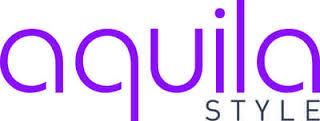 Embroidery was a very important art in the Medieval Islamic world. One of the most interesting accounts of embroidery were given by the 17th century Turkish traveler Evliya Çelebi, who called it the “craft of the two hands”. Because embroidery was a sign of high social status in Muslim societies, it became a hugely popular art.
Embroidery was a very important art in the Medieval Islamic world. One of the most interesting accounts of embroidery were given by the 17th century Turkish traveler Evliya Çelebi, who called it the “craft of the two hands”. Because embroidery was a sign of high social status in Muslim societies, it became a hugely popular art.
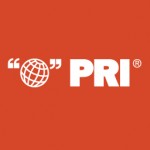




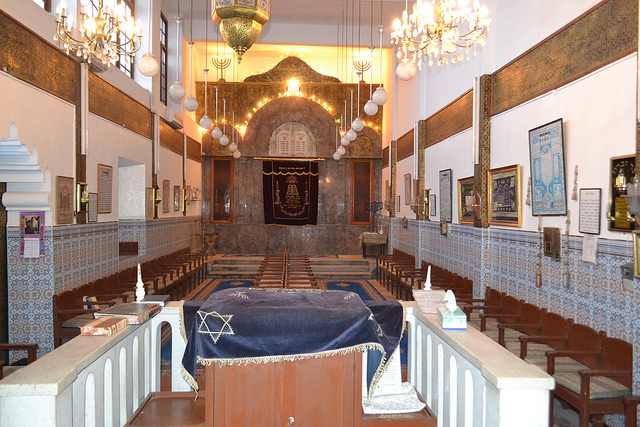
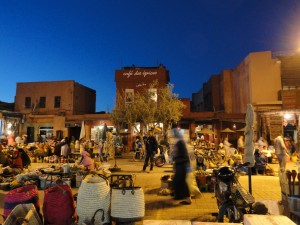
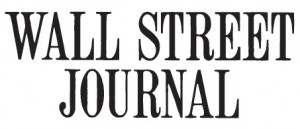



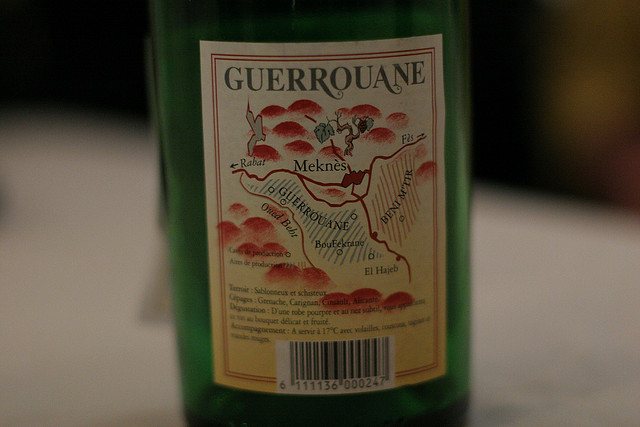
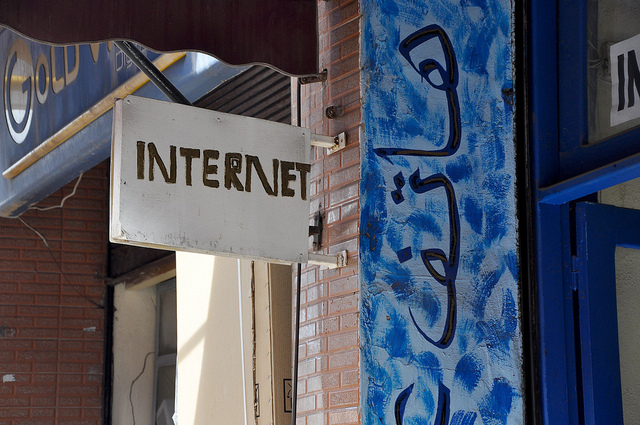
 PBS NewsHour has produced a great segment about Morocco’s Jewish community, and those working to preserve its history:
PBS NewsHour has produced a great segment about Morocco’s Jewish community, and those working to preserve its history: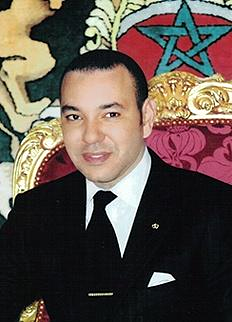 On July 30, 2015, on the occasion of Throne Day, King Mohammed VI delivered the following
On July 30, 2015, on the occasion of Throne Day, King Mohammed VI delivered the following 